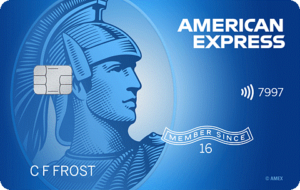You’re still paying for business expenses with a personal credit card, right? That could be a mistake. You may want to reconsider if you’re still using your personal credit card to pay for business-related expenses.
If you run a small business, you can receive offers and applications for small business credit cards. However, it can be an easy approach to enhance the purchasing power of your business.
Read this article to know about small business credit cards, including how they work, if you can qualify for one, and how to choose the best business card.
To Know How Small Business Credit Cards Work, Understand:
1. Know What Is a Business Credit Card
2. Understand How Business Credit Cards Work
3. Understand the Benefits of Business Credit Cards
4. Know Key Drawbacks of Business Credit Cards
5. Business Credit Cards and Your Personal Credit Score
6. Business Credit Cards and Your Business Credit Score
7. Business Credit Card Eligibility Requirements
8. Applying for a Business Credit Card
Here we go!
1. Know What Is a Business Credit Card
To know how small business credit cards work, understand what a small business credit card is.
Small business credit cards give business owners simple access to a revolving line of credit with a predetermined credit limit so they can make purchases and cash withdrawals.
You can apply for a credit card online or through your bank. You can compare card conditions and benefits by reading reviews of individual business credit cards. Using a business credit card can be a practical method to expand your company’s purchasing power and have quick access to funding for urgent requirements.
>>>MORE: What Is a Corporate Credit Card
2. Understand How Business Credit Cards Work
To be conversant with a small business credit card, have an understanding of how a business credit card works.
As a business owner, use your business credit card actively and just as you would with a personal credit card. Charge purchases on the business credit card and promptly receive a statement outlining the total balance owed and minimum payment required.
To avoid interest charges, make sure to pay your bill in full every month. If you choose to carry a balance, be aware that interest will accumulate on that balance and the interest rate may vary depending on the creditworthiness of your business.
Remember that some business credit cards are actually charge cards, which demand full payment every month. The advantage of charge cards is that they typically have no set credit limit, making them an ideal option for established businesses with significant monthly expenses. However, they may not be suitable for newer businesses with high startup costs or inconsistent income.
3. Understand the Benefits of Business Credit Cards
To know how small business credit cards work, understand their main benefits.
You may always use a personal credit card for business purchases, but using a business credit card has a lot of benefits.
- Maximize rewards for your business expenses by selecting the best business credit cards. If you frequently travel for work, earn cash back and rewards not only on your business travel but also on the travel expenses of employees charged to your card account.
- Take advantage of extended interest-free financing periods by choosing business credit cards that offer such a benefit. With a longer grace period to pay off your balance, you gain flexibility to make necessary business investments.
- Maximize your monthly cash-back bonuses by choosing premium business credit cards with higher spending caps. This way, you can earn additional funds to reinvest in your business.
- Empower your employees by adding them to your business credit card. Grant them specific authorization to make purchases on behalf of the business, monitor their activity, and earn rewards on their purchases. You can even set individual credit limits tailored to their responsibilities.
- Track your business spending effectively by using a business credit card. Separate your business expenses from personal expenses to keep your accounts organized and streamline your tax preparation process.
- Simplify expense reporting with a business credit card. You can easily categorize and track expenses for tax and expense reporting purposes.
- Keep in mind, business credit cards that give incentives often plan them around regular business costs. This way, you can earn rewards at a higher rate for expenses like travel, power bills, shipping, marketing and advertising, printing, and more.
- By using a reputable business credit card, you can benefit from extras like cost-free software subscriptions, main auto rental insurance, and other company tools.
4. Know Key Drawbacks of Business Credit Cards
To comprehend how business credit cards work, discern the key drawbacks of business credit cards.
Consider the following key drawbacks when using a business credit card:
High Interest Rates: Carrying a balance on your business credit card can result in high interest charges, making it more expensive to finance your business operations.
Annual Fees: Some business credit cards charge an annual fee, which can add to your business expenses and decrease the rewards you earn.
Complex Terms and Conditions: Business credit card agreements can be lengthy and complex, making it difficult to understand the terms and conditions of your card.
Credit Limit Fluctuations: The credit limit on your business credit card can fluctuate, which can affect your ability to make purchases and manage your finances.
Personal Liability: Depending on the structure of your business, you may be personally liable for the debts on your business credit card, putting your personal assets at risk.
Record Keeping: Keeping track of business expenses and reconciling your business credit card statements can be time-consuming and challenging, particularly for small businesses.
5. Business Credit Cards and Your Personal Credit Score
To discern how business credit cards work, grasp the essence of business credit cards and your personal credit score.
Understand the relationship between business credit cards and your personal credit score. Business credit cards can have an impact on your personal credit score because they may appear on your personal credit report. This can occur if you are personally liable for the debts on your business credit card, which means you are responsible for paying off the debts if your business is unable to do so.
Credit bureaus calculate your personal credit score from the data reported by your creditors. As a business credit card holder, the card issuer reports your business credit card actions like payment history and balances to credit bureaus, which affects your personal credit score. To maintain a strong personal credit score, it’s important to manage your business credit card responsibly and pay your bills on time. Keep an eye on your personal credit report regularly to ensure the information is accurate.
6. Business Credit Cards and Your Business Credit Score
To be knowledgeable about business credit cards, understand business credit cards and your business credit score. Stay informed about the relationship between your business credit card and your business credit score—which is a numerical representation of your business’s creditworthiness, and can influence your ability to secure loans, lines of credit, and other forms of financing.
Be aware that how you use your business credit card, such as paying on time and keeping balances low, will impact your business credit score. The card issuer will report your business credit card’s activities, including payment history and outstanding balances, to credit bureaus, which will then reflect in your business credit score.
>>>GET SMARTER: Business Credit Cards: How to Qualify for One
7. Business Credit Card Eligibility Requirements
To know how business credit cards work, discover business credit card eligibility requirements. To start with, you must own or manage a business and have a Social Security number (SSN), Tax Identification Number (TIN), or Employer Identification Number (EIN) for the business.
Additionally, you must have a good personal credit score, as well as a strong financial standing for your business.
Some card issuers may also require your business to have a minimum annual revenue or be in operation for a specific amount of time. Make sure to research and compare different business cards to determine their specific eligibility requirements.
8. Applying for a Business Credit Card
When applying for a business credit card, you initiate the process of acquiring a credit card for your business. To apply, you need to gather the required information and follow a few steps to complete the application process.
Start by researching available business credit cards to find one that fits your business needs, then gather your business information, including your business tax ID number, business income, and expenses.
Next, complete the online or paper application and submit it to the card issuer. The issuer then reviews your application, check your credit history and business financials, and make a decision on whether to approve or deny your application.
Conclusion
To know how small business credit cards work, understand what small business credit card is, know how business credit cards work, discover the benefits of business credit cards and understand key drawbacks of business credit cards.
Grasp the essence of business credit cards and your personal credit score, be familiar with business credit cards and your business credit score, discover the eligibility requirements for business credit card and know what it takes to when applying for a business credit card.








No Comment! Be the first one.